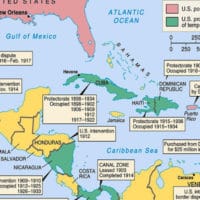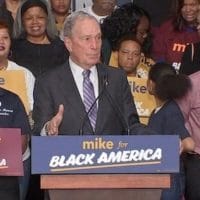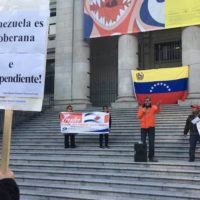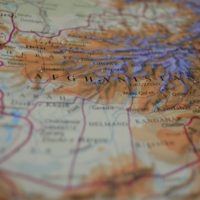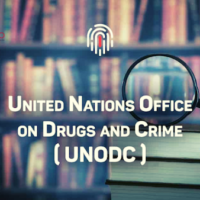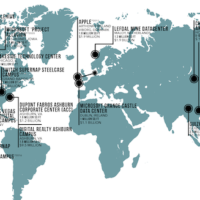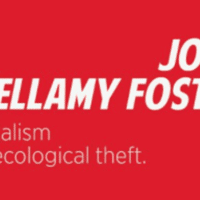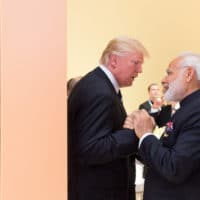-
Looking at change: U.S. and Cuba, blockade and revolution
The U.S. blockade of Cuba is like the sun; neither will disappear soon. But different: the U.S. politicians and people are aware of the sun, but may have forgotten about the Cuba blockade. It’s persisted for almost 60 years, basically unchanged. The following is about change.
-
Lebanon state prosecutor blocks order to freeze assets of 20 banks
Lebanon’s state prosecutor suspended an order on Thursday to freeze the assets of 20 local banks, warning it would plunge the country and its financial sector into chaos, according to a copy of the decision seen by Reuters.
-
Fear pervades Black politics, and makes us agents of our own oppression
Black youth see the truth, and will act on it, we are certain.
-
Canadian media lies about Venezuela
Canada’s public media the CBC long-ago entered the ranks of yellow journalism when it comes to its reporting on Venezuela. However, two recent reports, in particular, one on CBC radio’s “The Current” and the other a CBC News article by reporter Evan Dyer, weigh heavy on the sensationalism and light on facts. Filled with unsubstantiated claims, right-wing pundits parading as “pro-democracy” advocates and unchallenged declarations by the government of Canada officials, once again, the CBC firmly establishes their role as the mouthpiece of the government Canada.
-
Obamacare with a public option: fool me twice shame on me
There is an old saying “Fool me once shame on you, fool me twice shame on me.” That saying is relevant for the current healthcare debate in which former Vice-President Biden and elite Democrats are touting a reheated version of Obamacare with a public option. It is a case of trying to fool the American public twice.
-
No, the coronavirus is not responsible for the fall of stock prices
We are witnessing a big crisis in the stock markets of the Wall Street, Europe, Japan and Shanghai, and many blame the coronavirus for it. In the last week of February 2020, the worst week since October 2008, the Dow Jones fell 12.4%, the S&P 500 fell 11.5% and the Nasdaq Composite fell 10.5%.
-
A little help from their friends: How Vietnam withstood largest bombing campaign in human history
Between 1965 the 1975, the United States Air Force dropped over three times more bombs on the Southeast Asian nations of Vietnam, Laos and Cambodia than the total tonnage dropped by the Allies during World War II.
-
Supreme Court ruling hands U.S. Border Patrol a license to kill with impunity
The Supreme Court set a dangerous precedent yesterday when it ruled in favor of the U.S. Border Patrol in the cross-border murder of a young teenage boy who was shot in the face by an overzealous agent.
-
A World no longer shaped by Atlantic powers
The annual Munich Security Conference that took place February 14-16 this year turned out to be an iconic event, drawing comparison with the one held in the same Bavarian city on February 10, 2007, where in a prophetic speech Russian President Vladimir Putin had criticized the world order characterized by the United States’ global hegemony and its “almost uncontained hyper use of force—military force—in international relations.”
-
Trump touts biodefense strategy but slashes funding to detect and combat outbreaks like coronavirus
t the end of January, at a time when the coronavirus outbreak that began in China was dominating international headlines, The White House announced it was forming a new task force to address the growing crisis, one headed by the secretary of health and human services, Alex Azar.
-
Digital Workerism: Technology, platforms, and the circulation of workers’ struggles
The so-called platform economy–the distribution of, and access to work through websites and apps–continues to grab headlines and the imagination of policy makers, researchers, and journalists the world over. Much attention is given to its rapid expansion, its potential for further growth, and the large amounts of wealth generated through it.
-
Personal Data: Political persuasion
In the format of a guide and a visual gallery, Tactical Tech identify over 300 of the companies who offer their services to political parties, and give an in depth guide to thirteen of the key methods that are used to target and influence voters.
-
The problem with private property
The conceptualisation of property in a economic sense harks back to John Locke. These days property is commonly separated into four categories.
-
Is the World about to witness the end of the war in Afghanistan?
Neither the Indian political leadership nor the “deep state” seems to grasp that the geopolitics of the South Asian region is transforming with far-reaching consequences.
-
Sure, but Venezuela is the Narco State…
Venezuelan analyst Oscar Forero contextualises the accusation that Venezuela is immersed in illegal drug activity.
-
New starting point(s): Marx, technological revolutions and changes in the centre-periphery divide
This paper presents the last book that Marx excerpted in his life: La Physique Moderne, written by Hospitalier and published in 1882. This last Notebook (B156, in the IISG’s archives) contains hints of other issues that he was researching in his last years, especially societies at the periphery.
-
Bloomberg wants to swallow the Democrats and spit out the Sandernistas
If, somehow, Bernie Sanders is allowed to win the nomination, Michael Bloomberg and other plutocrats will have created a Democratic Party machinery purpose-built to defy Sanders–as nominee, and even as president.
-
Politicizing water in Chile
Chile is today in the midst of an unprecedented constituent process 30 years after the return of democracy, where the possibility of a new constitution has opened a discussion about what sort of country we want, and which rights should be enshrined in the drafting of this fundamental document.
-
1131: Capitalism and ecological theft
Sociologist John Bellamy Foster on the modern divide between humanity and nature and his book “The Robbery of Nature: Capitalism and the Ecological Rift” from Monthly Review.
-
How India’s Modi is playing on Trump’s ego to his advantage
One thing about U.S. President Donald Trump is that he can be brutally frank. Trump recently picked up the phone and called British Prime Minister Boris Johnson to convey his displeasure over the latter’s decision to allow Huawei to operate in the UK despite Washington’s repeated urgings.

